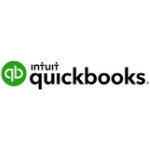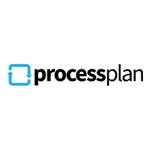Understanding Your Statement of Cash Flows
Do you fully understand the impact of your business activities on your cash flow? Your cash flow statement can give you great insight into business operations. Book a session today to examine your financial reports.
The statement of cash flows, (also known as the cash flow statement), shows how your business has generated and used cash (and cash equivalents) within a specific time period.
For each of the reporting categories, receipts and payments are listed (money in and money out), and this is reported as a net increase or decrease in cash held for that category.
The net change in all categories is added to the amount of cash on hand at the start of the reporting period to arrive at the current cash on hand figure at the end of the reporting period.
It is another important financial statement to understand in conjunction with the Profit and Loss statement and the Balance sheet. These three reports provide a good understanding of the financial position of your business.
How Does it Work?
The cash flow statement integrates the information provided by the profit and loss statement and the balance sheet into a current cash position. The cash flow statement is reported on a cash basis, while your other financial statements are usually reported on an accrual basis. Accrual income (from the profit and loss statement) is converted to cash by calculating the changes in the balances of asset and liability accounts.
Report Categories
The statement of cash flows is organised into sections that report on different types of business activity.
- Operating activities - all business income, expenses, assets and liabilities (except for those assets and liabilities reported in investing and financing activities).
- Investing activities - the purchase and sale of long-term investments, property, plant and equipment as well as security deposits paid to suppliers or received from customers and dividends received.
- Financing activities - the changes in balances of equity accounts, for example, issuing and repurchase of stocks and bonds and payment of company dividends if applicable. Loans are also included in financing activities.
Formal financial report packages usually include notes to the financial statements. The notes contain supplemental information that explain significant items or activities that did not involve cash transactions. The notes may also include detailed reporting of categories that may have been reported as summary totals only in the profit and loss, balance sheet and statement of cash flows. Other items such as taxes, employee provisions, risk management or related party transactions may also be detailed in the notes.
Why is it Useful?
The statement of cash flows gives you a valuable measure of cash flow in and out of the business over a given period. It shows the ability of the business to pay its bills and fund its operating activities. This gives you a picture of overall performance.
It also shows the relationships between assets, liabilities, equity and cash accounts. It shows changes and movements over time, whereas the balance sheet and profit and loss reports show account values at a single point in time.
The statement of cash flows gives you vital information on your business.
- How strong is your cash position?
- What is the long-term outlook for your business?
- What activities generate the most cash flow?
- What is the relationship between your net income and your operating activities?
If you’d like to understand your financial statements, cash position and future outlook in more depth, arrange an advisory session today. We’ll help you identify and appreciate the strengths of your business.















